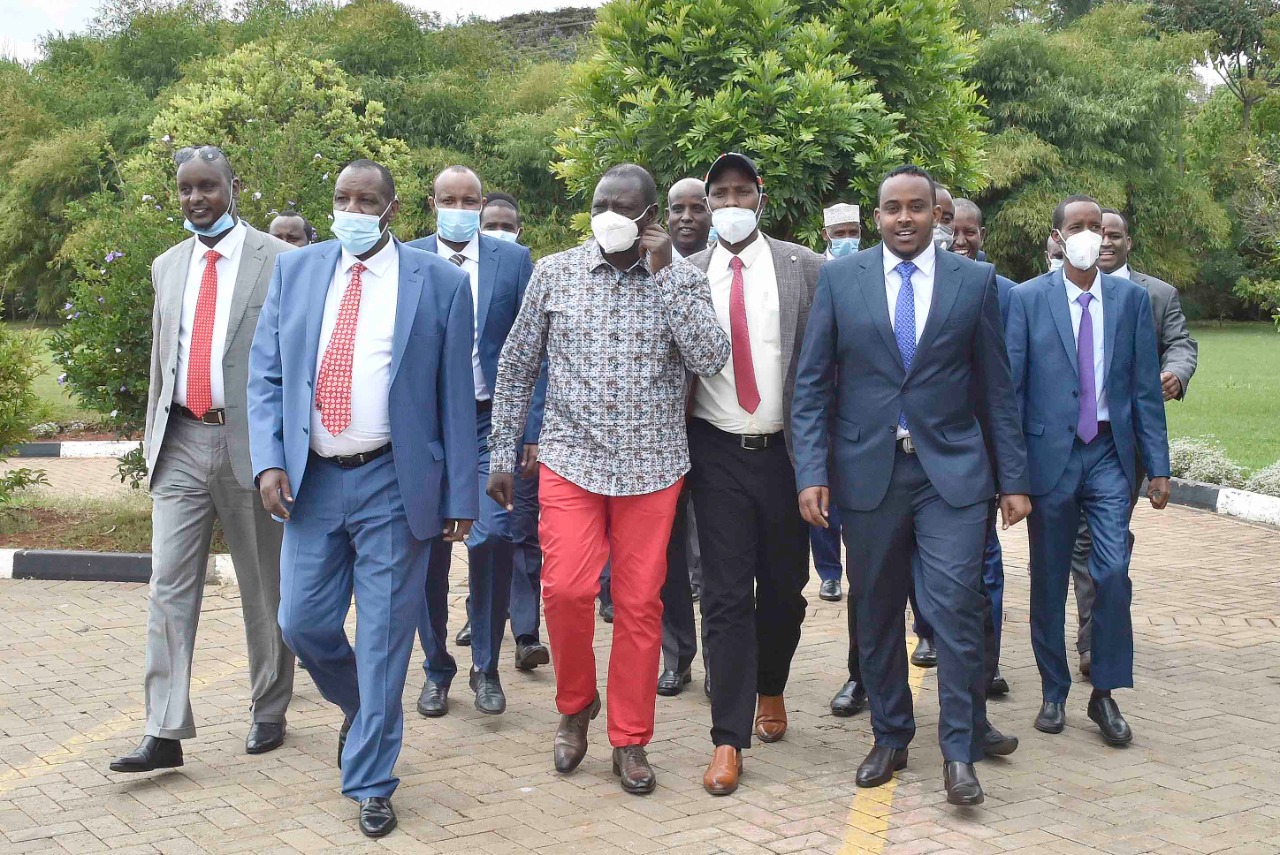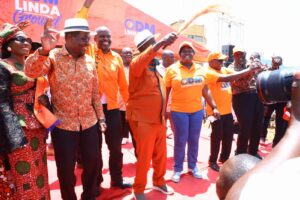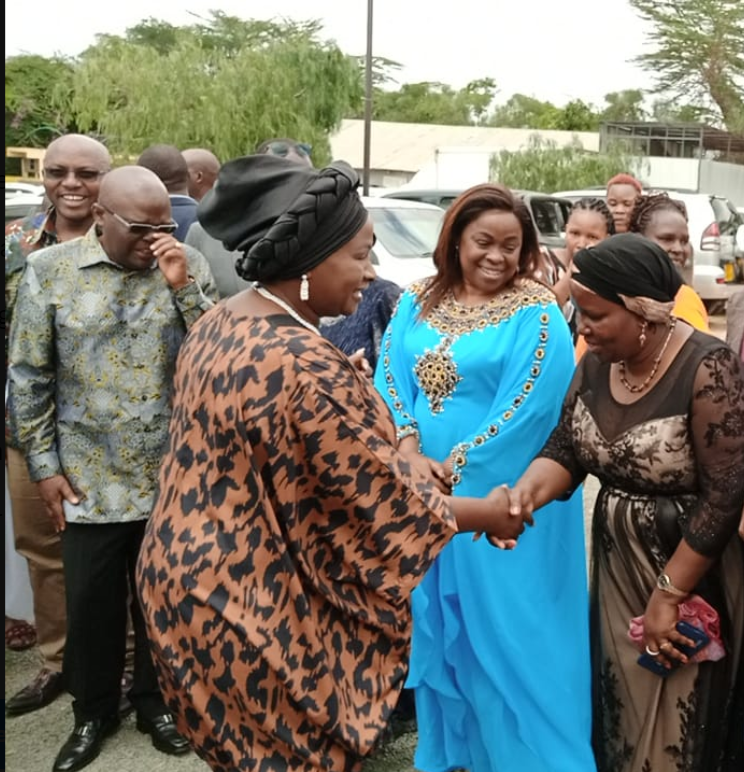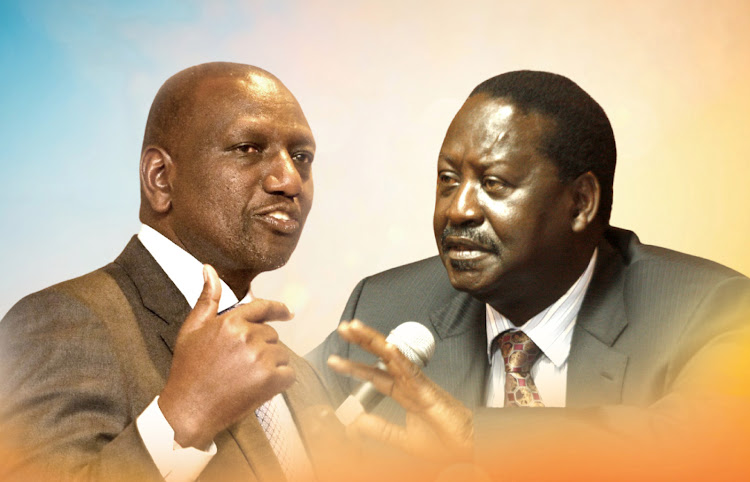Deputy President Dr. William Ruto has called on the Members of the County assemblies to shun ‘Yes-no’ campaigns that Opposition leader Raila Odinga is crafting around the BBI report.
Ruto who spoke on Monday told Wajir MCAs that competitive politics are retrogressive as they threaten to tear the for the country apart.
The man who leads the ‘Hustler’s Movement’ and the ‘Tangtanga’ faction of Jubilee that has vowed to shoot the BBI document if it is not reviewed to capture the needs of the ordinary Kenyans.
The DP’s move to coerce MCAs to work together and push for progressive engagements around the Building Bridges Initiative is a move to put hurdles on the BBI path.
” A divisive referendum process cannot be used to achieve a united country. We must at the moment prioritise the health of our people and focus on countering the effects of Covid-19″ Ruto said.
During a meeting with all the Members of the County Assembly of Wajir led by Majority Leader Mohamud Gabane and Minority Leader Abdi Hussein, Karen, Nairobi County. pic.twitter.com/WSKY9Tq0s5
— William Samoei Ruto, PhD (@WilliamsRuto) November 16, 2020
Ruto claimed his faction is for building of consensus to ensure that the whole country rallies behind the document after it’s content is improved.
“If we are trying to sort out the problem of divisive elections leading to a divided country via BBI, why then are we after a divisive referendum that would end up tearing apart the country?” Ruto asked.
Pundits have argued that Raila using the BBI report to shape his 2022 where he is expected to face off with Ruto.
The DP has also accused the ODM leader of rushing BBI politics when the country should focus on serious issues as containing the surging numbers of covid-19 and related deaths.
On Sunday, Ruto said the country needs to give more attention to the surging cases as well as deaths related to coronavirus.
Raila had last week hinted that the BBI team will begin collecting one million signatures from Kenyans anytime to kick start the referendum process.
After collection of signatures and submission of the report to the Independent Electoral and Boundaries Commission (IEBC). It will need to be approved by at least (24) of the county assemblies before it proceeds to the Parliament.




















